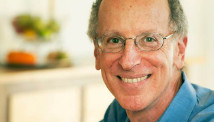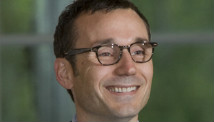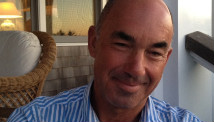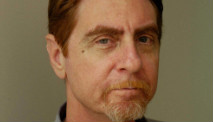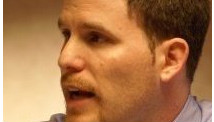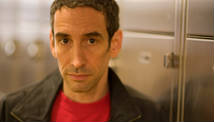Last updated at 10:46 a.m. ET
ALGIERS, Algeria About 30 foreign hostages are still unaccounted for three days into a bloody siege with Islamic militants at a gas plant deep in the Sahara, Algeria's state news service said Friday.
The militants, meanwhile, reportedly offered to trade two American hostages for terror figures jailed in the United States, according to a statement received by a Mauritanian news site that often reports news from North African extremists.
It was the latest development in a hostage drama that began Wednesday when militants seized hundreds of workers from 10 nations at Algeria's remote Ain Amenas natural gas plant. Algerian forces retaliated Thursday by storming the plant in an attempted rescue operation that killed at least four hostages and left leaders around the world expressing strong concerns about the hostages' safety.
Algerian special forces resumed negotiating Friday with the militants holed up in the refinery, according to the Algerian news service, which cited a security source.
The report said nearly 100 of the remaining 132 had been freed by Friday, but it could not account for the remainder.
Militants on Friday offered to trade two American hostages for two prominent terror figures jailed in the United States: Omar Abdel-Rahman, also known as "the Blind Sheikh," who masterminded the 1993 World Trade Center bombing and Aafia Siddiqui, a Pakistani scientist convicted of shooting at two U.S. soldiers in Afghanistan.
The offer, according to a Mauritanian news site that frequently broadcasts dispatches from groups linked to al Qaeda, came from Moktar Belmoktar, an extremist commander based in Mali who apparently masterminded the operation.
It could not be independently confirmed.
Algeria's government has kept a tight grip on information, but it was clear that the militant assault that began Wednesday with an attempted bus hijacking has killed at least six people from the plant — and perhaps many more.

Deaths and survivors in Algerian hostage rescue
Workers kidnapped by the militants came from around the world — Americans, Britons, French, Norwegians, Romanians, Malaysians, Japanese, Algerians. Leaders on Friday expressed strong concerns about how Algeria was handing the situation and its apparent reluctance to communicate.
British Prime Minister David Cameron went before the House of Commons on Friday to provide an update, seeming frustrated that Britain was not told about the military operation despite having "urged we be consulted."
At least one American, Mark Cobb, who had hidden in a meeting room, is known to have gotten out of the gas plant, CBS News correspondent Mark Phillips reports.
One high-ranking source in the U.S. government told CBS News that four Americans had been freed, one of them injured, after the raid.
Defense Secretary Leon Panetta said Friday the U.S. is working with the British and Algerian governments to assess what's happening on the ground. Speaking Friday at Kings College in London, Panetta said the U.S. is "working around the clock to ensure the safe return of our citizens."
Panetta said the terrorists should be on notice that they'll find no sanctuary in Algeria or North Africa.
He said anyone who looks to attack the U.S. will have "no place to hide."
National Security Council spokesman Tommy Vietor said President Obama was receiving regular updates from his national security team and was in constant contact with the Algerian government, stressing that "our first priority is the safety and security of the hostages. "
Terrorized hostages from Ireland and Norway trickled out of the Ain Amenas plant, 800 miles south of Algiers, the capital. BP, which jointly operates the plant, said it had begun to evacuate employees from Algeria.
On Friday, up to around 20 people, including some Americans, were being evacuated from the country, a spokesperson for the U.S. African Command said. AFRICOM said those with injuries would recieve medical treatment en route to Europe, but would not specify the extent of the injuries or the final destination within Europe for the evacuees.
"This is a large and complex site and they are still pursuing terrorists and possibly some of the hostages," Cameron said. He told lawmakers the situation remained fluid and dangerous, saying "part of the threat has been eliminated in one part of the site, a threat still remains in another part."
Algeria's army-dominated government, hardened by decades of fighting Islamist militants, shrugged aside foreign offers of help and drove ahead alone.
The U.S. government sent an unarmed surveillance drone to the BP-operated site, near the border with Libya, but it could do little more than watch Thursday's military intervention. British intelligence and security officials were on the ground in Algeria's capital but were not at the installation, said a British official who spoke on condition of anonymity because he was not authorized to speak to reporters.
A U.S. official said while some Americans escaped, other Americans were either still held or unaccounted for.
El Mokhtar Ould Sidi, editor of the Mauritanian news site ANI, said several calls on Thursday came from the kidnappers themselves giving their demands and describing the situation.
"They were clearly in a situation of war, the spokesman who contacted us was giving orders to his colleagues and you could hear the sounds of war in the background.... He threatened to kill all the hostages if the Algerian forces tried to liberate them," he said.
With the hostage drama entering its second day Thursday, Algerian security forces moved in, first with helicopter fire and then special forces, according to diplomats, a website close to the militants, and an Algerian security official. The government said it was forced to intervene because the militants were being stubborn and wanted to flee with the hostages.
Militants claimed 35 hostages died when the military helicopters opened fire as they were transporting hostages from the living quarters to the main factory area where other workers were being held.
The group — led by a Mali-based al Qaeda offshoot known as the Masked Brigade — suffered losses in Thursday's military assault — but garnered a global audience.
The militants made it clear that their attack was in revenge for the French intervention against Islamists who have taken over large parts of neighboring Mali. France has encountered fierce resistance from the extremist groups in Mali and failed to persuade many Western allies to join in the actual combat.
Even violence-scarred Algerians were stunned by the brazen hostage-taking Wednesday, the biggest in northern Africa in years and the first to include Americans as targets. Mass fighting in the 1990s had largely spared the lucrative oil and gas industry that gives Algeria its economic independence and regional weight.
The official Algerian news agency said four hostages were killed in Thursday's operation, two Britons and two Filipinos. Two others, a Briton and an Algerian, died Wednesday in the initial militant ambush on a bus ferrying foreign workers to an airport. Citing hospital officials, it said six Algerians and seven foreigners were injured.
APS said some 600 local workers were safely freed in the raid — but many of those were reportedly released the day before by the militants themselves.
One Irish hostage managed to escape: electrician Stephen McFaul, who'd worked in North Africa's oil and natural gas fields off and on for 15 years. His family said the militants let hostages call their families to press the kidnappers' demands.
"He phoned me at 9 o'clock to say al Qaeda were holding him, kidnapped, and to contact the Irish government, for they wanted publicity. Nightmare, so it was. Never want to do it again. He'll not be back! He'll take a job here in Belfast like the rest of us," said his mother, Marie.
Dylan, McFaul's 13-year-old son, started crying as he talked to Ulster Television. "I feel over the moon, just really excited. I just can't wait for him to get home," he said.




